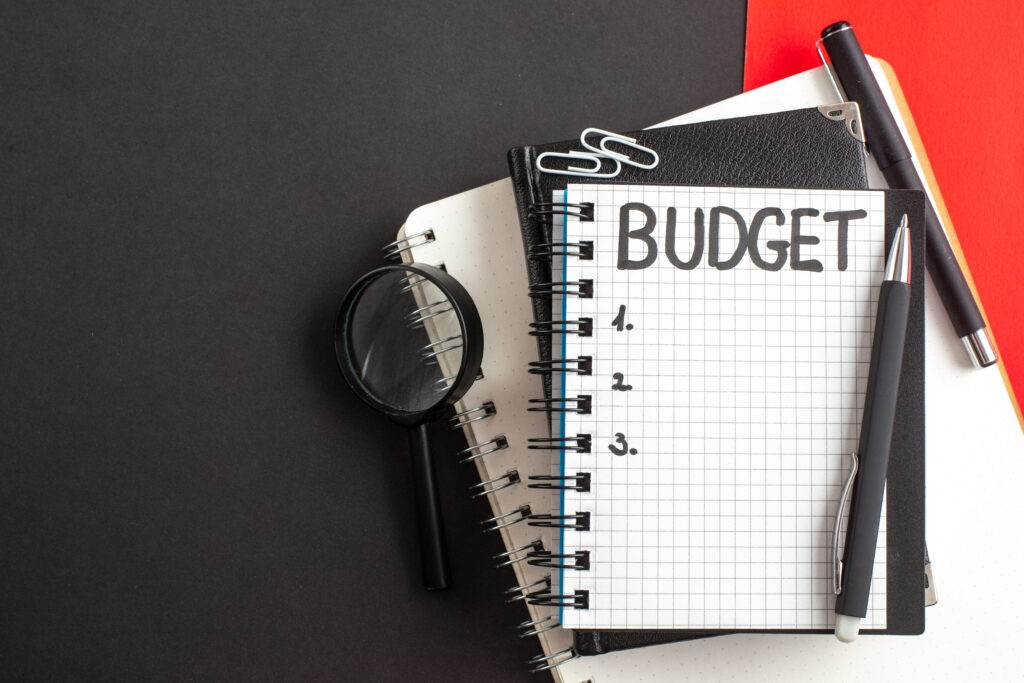The Power of Budgeting

What is the single, most powerful strategic financial tool you have complete control over? Go ahead, think, I’ll wait……..yep – your budget because it powers your life by telling your money where to go!
Financial independence (FI) is a goal that we aspire to achieve at Enjoying the Journey. Having a solid foundation of budgeting skills will prove to be invaluable at guiding us toward FI. Budgeting goes beyond number crunching or creating a “cool” spreadsheet but can actually turn your six-figure student loan debt into a Paid in Full account. Your monthly budget can help you effectively manage your money, enabling you to take control of your finances and build a secure future. Welcome to the world of budgeting, your roadmap to financial independence.
Understanding the Power of Budgeting
Budgeting is more than just tracking your expenses; it’s a strategic tool that provides financial clarity, you literally tell your money where and how it will be spent. Your budget provides a clear overview of your income, expenses and savings plan. It helps you identify areas where you can cut back, but equally as important, it allows you to save for your dreams. Important note: If you have a partner or family members, involve them in the budgeting process. Open communication and collaboration ensures everyone is on the same page and working towards common financial goals.
Calculate Your Income and Expenses
Start by gathering all sources of income, including your salary, bonuses and side hustles. Next, track your monthly expenses. Categorise them into fixed (rent/mortgage, utilities) and variable (groceries, entertainment) expenses. Understanding your cash flow is crucial for creating a realistic budget.
Goal Achievement
Budgeting without goals is like driving without a destination. Define short-term and long-term financial goals, such as paying off your dreaded student loan, building an emergency fund, saving for a vacation or investing for retirement. These goals will provide direction and keep you motivated.
Creating Your Budget
Based on your income, expenses and goals, design a budget that balances your cash flow. Allocate money to each expense category while leaving room for savings and discretionary spending. At Enjoying the Journey, deprivation is never part of the process. Some people like the 50/30/20 rule, where 50% of your income covers needs, 30% covers wants and 20% goes toward savings and debt repayment. I prefer to look at my goals. When I was deep in debt, I focused on debt repayment and only kept $1,000 in my savings account. Maybe you need more to feel a bit more secure, only you can determine the amount needed before you plunge into debt repayment, personal finance is just that PERSONAL! You may be in the debt repayment phase for years (it took me 7), but progress is your goal. Because this can be a long phase, find ways to be creative. In future posts, I will share some of the things I did to enjoy my life while paying off $414k in debt.
Track and Adjust Regularly
Budgeting is never static just like life, I recommend monthly tracking. Regularly track your spending to ensure you’re staying on course. There are many apps and tools are available to simplify this task, such as Mint. If you notice overspending in a particular category, adjust your budget accordingly, but remember that flexibility is key.
Emergency Fund
Life comes for each of us and having an emergency fund is a critical part of financial security. Aim to save 6 months’ worth of expenses in a separate account. This money should be kept in a high yield savings account that you can access in 1-2 days. I know some financial experts say 3 months is enough but as a Gen-Xer with multiple people counting on me, I needed more to feel more secure. Again, this is a personal decision, you decide on your goal.
Investing for Your Future
As your financial picture improves, consider investing your additional funds such as a tax refund, annual bonus, side hustles, etc. Explore different investment vehicles, such as index funds, stocks, bonds, real estate and retirement accounts. Diversification and long-term planning are essential to building wealth. I am not a financial advisor, nor do I have the financial acumen or time to pick individual stocks, so I opened a Vanguard account and bought two index funds. I made the investments automatic so I don’t have to think about it and I track quarterly.
Review and Celebrate Milestones
Regularly review your budget (monthly is my recommendation) and financial goals (quarterly or semi-annually should be enough). Celebrate your achievements, no matter how small and find ways to celebrate that don’t include spending like attending free local activities. I’m always amazed at what my local neighbourhood has to offer! Celebrating your progress can help you stay motivated and committed to your journey to financial independence.
Achieving financial independence requires commitment, discipline and a strategic approach. Your budget is an investment in your future. It will help you to set clear goals, pay off your debt by living below your means, build an emergency fund, take that dream vacation and invest wisely. Remember, your life is a sum total of decisions you’ve made up to this point.
Start today and make a quality decision to sit down and write a realistic budget, so you can begin the journey towards financial independence with confidence.
Thanks for reading and remember, our story is far from over, let’s keep Enjoying the Journey!